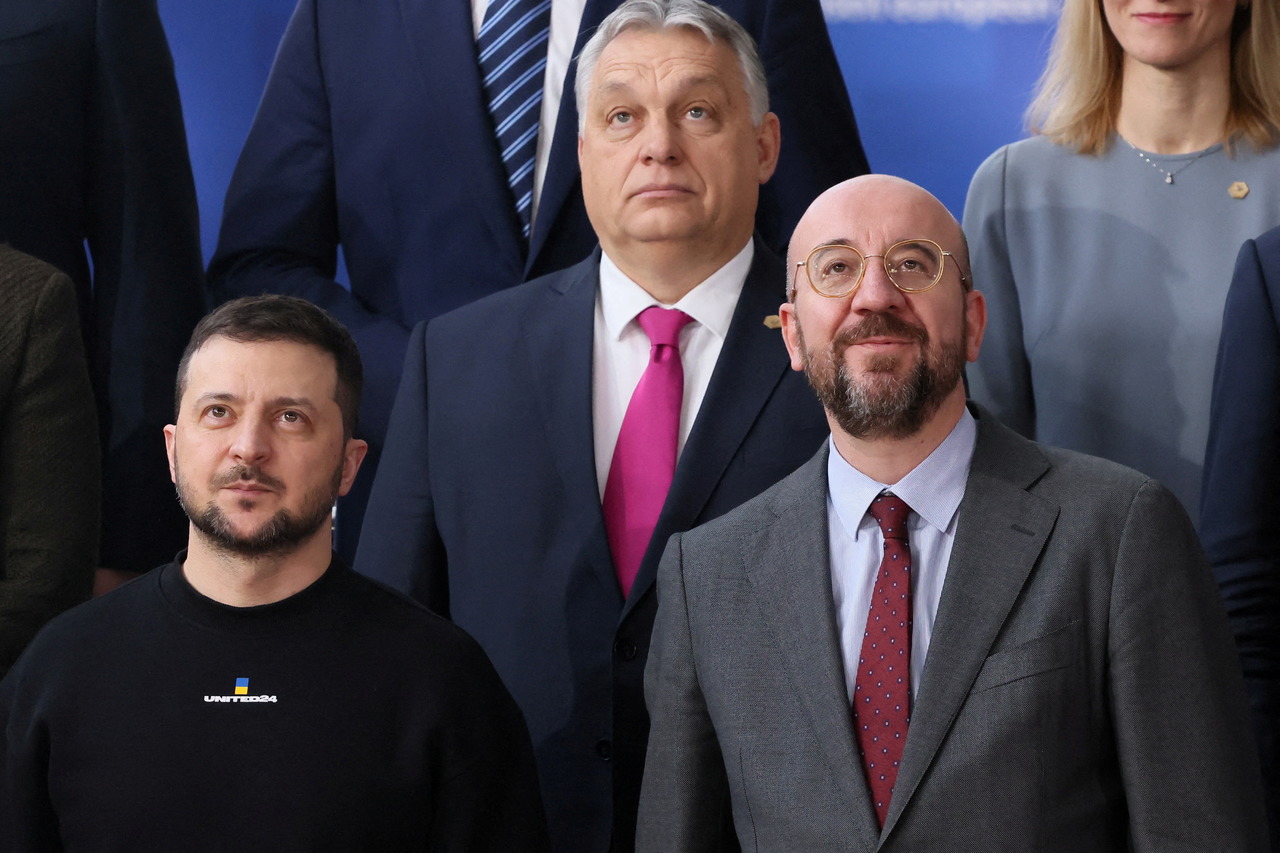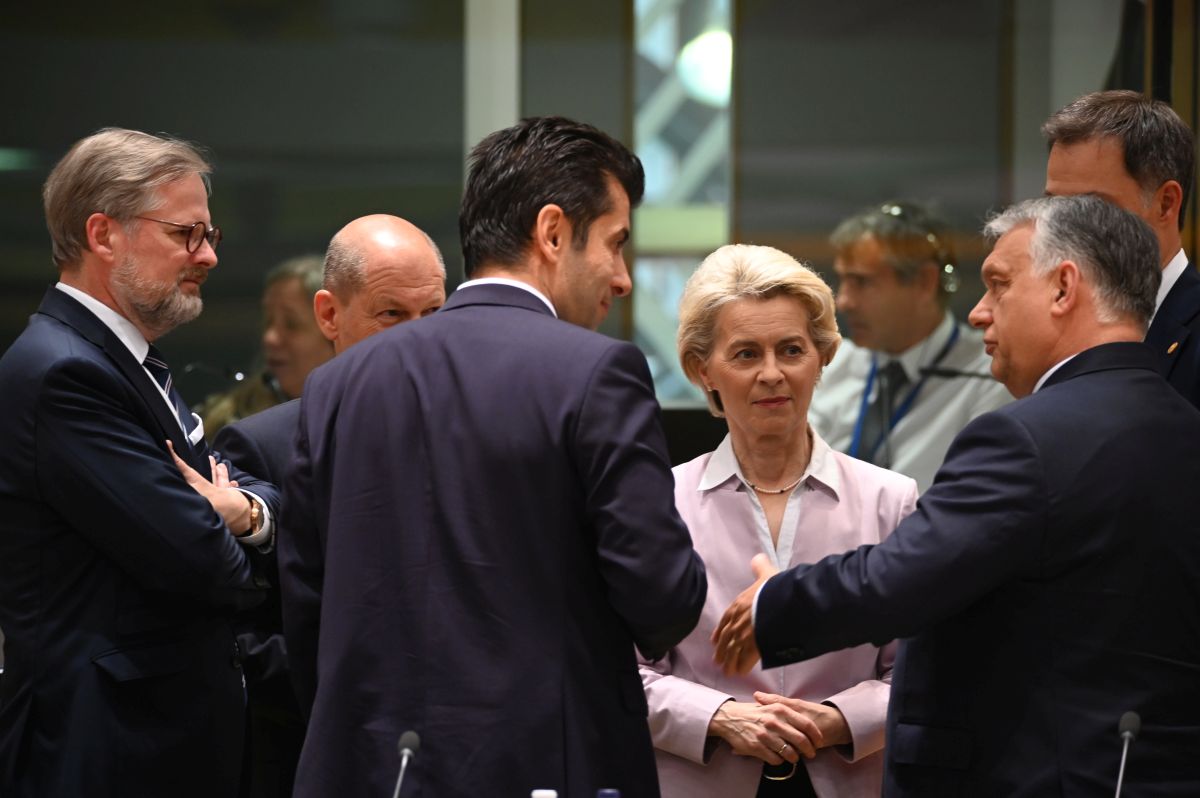Triggering the Rule-of-Law Conditionality Mechanism against Hungary
The mechanism that makes the payment of funds from the EU budget conditional on compliance with the principles of the rule of law is the newest instrument for protecting the Union’s financial and political interests. The tool allows the European Commission and the EU Council (Council) to exert influence on Member States that violate the fundamental principles of the Community. Triggering it against Hungary might result in a reduction of EU funds to the country as a consequence of rule-of-law violations for the first time in EU history. It is doubtful, however, that this will lead to systemic changes in Hungary.
 YVES HERMAN / Reuters / Forum
YVES HERMAN / Reuters / Forum
Previous EU Instruments Used in Disputes with Hungary
For more than a decade, EU institutions have been investigating legal changes introduced in Hungary and irregularities in the functioning of public institutions under the rule of Viktor Orbán. The first regulation that raised reservations was the Media Law of 2010, which, among others, eliminated representatives of the opposition from the body controlling the activity of broadcasters. The new constitution of 2011 and the laws enacted under it also raised legal doubts, for example about the independence of the judiciary and fair political competition. The EU and other international institutions, including the Council of Europe, also pointed to shortcomings in Hungarian public anti-corruption mechanisms.
The EU has unsuccessfully used a whole range of means to persuade Hungary to implement Community requirements. For example, the European Parliament (EP) in numerous resolutions called on its committees and the European Commission to assess Hungarian regulations and monitor the implementation of the necessary amendments. The Commission has tried to achieve this through, among other means, infringement procedures, some of which were settled by the European Court of Justice (ECJ), although Hungary has still not implemented some of the judgments. In 2013, the EU introduced, as part of the European Semester (the Union’s economic policy coordination process), the EU Justice Scoreboard, an additional assessment of the quality of justice systems in the Member States. In 2014, it established a three-stage dialogue to strengthen the rule of law, and since 2020 it has published an annual rule-of-law report with recommendations. Evidence of the ineffectiveness of these measures is that the 2022 report finds no improvement in any of the examined areas in Hungary (the justice system, anti-corruption framework, media pluralism, other institutional checks and balances) and recommends systemic changes.
Paralysis of the Procedure under Article 7 of the Treaty on EU (TEU)
EU institutions that have examined legal changes in Hungary have referred to the general clauses incorporated in the treaties: fundamental values, like democracy and the rule of law, on which, in accordance with Article 2 TEU, the Union is founded. In September 2018, the EP called on the Council to determine, in accordance with Article 7 TEU, the existence of a clear risk of a serious breach of these values by Hungary. Since then, the procedure is still in its first phase. There have been four hearings of the Hungarian government before the Council, which concerned the independence of the judiciary, corruption, and academic freedom.
Forcing Hungary to implement legal changes by imposing sanctions through the Article 7 procedure is very difficult. This is because, first, it takes a four-fifths majority to move to the next stage, which can end in the suspension of certain Member State rights. However, no presidency of the Council has held such a vote, as some Member States are reluctant to set a precedent. Second, the proceedings are slowed down by a lack of detailed procedures, as this is the first time in the EU’s history that they are conducted (against Hungary, and in parallel, against Poland). For example, some EU members (Austria and Romania, among others) limited the procedure in the first phase by not holding any hearings in the Council during their presidencies. Third, one of the conditions for imposing sanctions is a unanimous decision of the European Council—very unlikely as long as there is a parallel procedure against another Member State that can veto the decision, counting on mutual support (cross-veto).
Use of the Rule-of-Law Conditionality Mechanism
The newest instrument that gives more leverage to put pressure on Member States violating common values is the conditionality regulation 2020/2092, adopted by the EP and the Council in 2020. Its main purpose is to protect the EU budget. The regulation provides for the possibility of suspending funds in the event of breaches of rule-of-law principles in a Member State, but only if it affects the “sound” financial management of the budget. Such a decision may be taken by the Council by qualified majority, on the Commission’s proposal. A new solution compared to the previous regulations protecting European funds is whether there is a threat to the independence of the judiciary, along with corruption and fraud, as grounds for imposing measures.
Under Regulation 2020/2092, the Council suspended last December €6.3 billion in budgetary commitments to Hungary under Cohesion Policy programmes for the period 2021-2027 (around one-third of its cohesion funds). It cited breaches of the rule of law concerning public procurement and the ineffectiveness of prosecutorial action and the fight against corruption. This measure may be lifted on a proposal from the Commission if Hungary fully remedies these problems within two years. In addition, while the Council approved Hungary’s recovery plan (national spending from the Recovery and Resilience Fund), it made access to these funds (a total allocation of €5.8 billion) conditional on the completion of 27 milestones (institutional reforms) by the end of March this year, mainly in the field of public procurement and combating corruption.
The decision to use Regulation 2020/2092 was the result of a substantive assessment, as well as part of broader political pressure on Hungary. This is indicated by its adoption in one package with the approval of the €18 billion EU loan for Ukraine and the introduction of a global minimum corporate tax. In both cases requiring unanimity, Hungary signalled it would object, but eventually agreed in exchange for approving the recovery plan and lowering the amount frozen under the regulation (the Commission demanded €7.5 billion).
Conclusions
The ineffectiveness of previous instruments obliging Hungary to comply with democratic values and the rule of law resulted from various factors. First, Hungary has not fully implemented some of the ECJ’s judgments and has adjusted to the recommendations of EU institutions. However, this did not have severe financial consequences. Second, although under EU pressure Hungary often adapted its national law to the letter of EU law, this did not always ensure respect for fundamental rights. Third, violations of these rights have not always resulted from the use of legal tools, but also economic ones, which are more difficult to sanction.
Compared to the procedure under Article 7, the conditionality mechanism is more effective in terms of its possible use. While Article 7 remains a dead letter due to the unanimity requirement, the conditionality mechanism is a real threat, despite the restrictive conditions for its activation, because of the requirement of only a qualified majority for its approval. Its use against Hungary is the first case of a real possibility that a country will lose funds from the EU budget for non-compliance with the principles of the rule of law. Financial sanctions increase the chances of effective protection of the EU’s interests related to the transparent spending of common funds and compliance with the principles crucial for the operation of the EU legal system. However, the success of this mechanism will only be complete if Hungary makes appropriate systemic changes, which has not been seen so far.
The mechanism has also proved to be an effective means of political pressure in a situation where the Hungarian blackmail of vetoing a decision requiring unanimity paralysed—not for the first time—joint EU action. However, this can work both ways: threatened states can defend themselves against sanctions by obstruction where unanimity is required.
As a result of the lack of effective cooperation with EU institutions and the confrontational approach to current political matters, Hungary has lost the trust of all its EU partners. This is indicated by the unanimous adoption of the decision on financial measures by the Member States. The conflict with EU institutions thus generates political costs for Hungary resulting in marginalisation in the Community. However, it still has access to around 80% of the funds allocated to it from the EU budget that are not affected by the pending proceedings. This limits the possibility to exert influence on Orbán, for example, regarding the support for Ukraine, which is a crucial matter for Poland.





